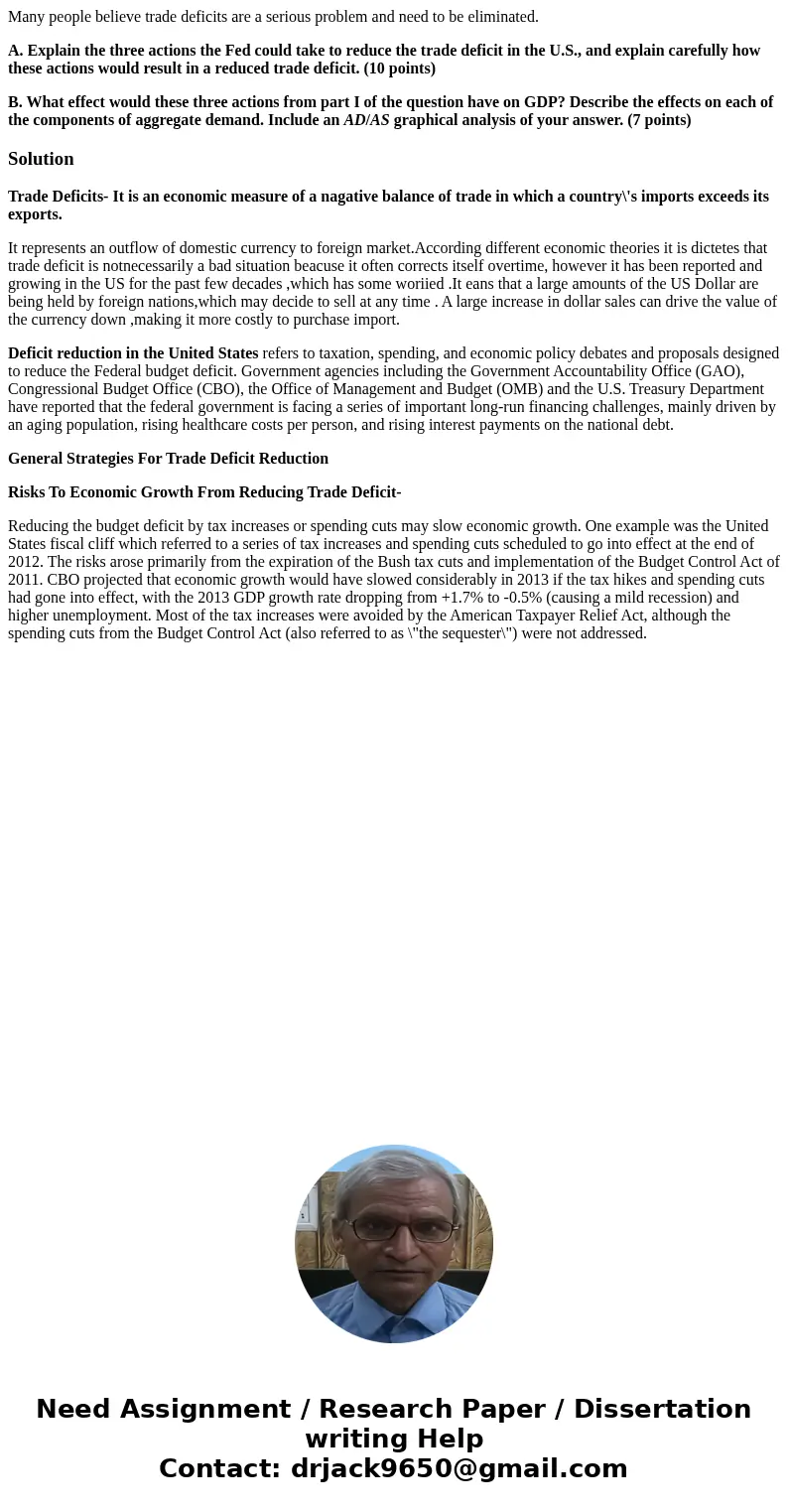Many people believe trade deficits are a serious problem and
Many people believe trade deficits are a serious problem and need to be eliminated.
A. Explain the three actions the Fed could take to reduce the trade deficit in the U.S., and explain carefully how these actions would result in a reduced trade deficit. (10 points)
B. What effect would these three actions from part I of the question have on GDP? Describe the effects on each of the components of aggregate demand. Include an AD/AS graphical analysis of your answer. (7 points)
Solution
Trade Deficits- It is an economic measure of a nagative balance of trade in which a country\'s imports exceeds its exports.
It represents an outflow of domestic currency to foreign market.According different economic theories it is dictetes that trade deficit is notnecessarily a bad situation beacuse it often corrects itself overtime, however it has been reported and growing in the US for the past few decades ,which has some woriied .It eans that a large amounts of the US Dollar are being held by foreign nations,which may decide to sell at any time . A large increase in dollar sales can drive the value of the currency down ,making it more costly to purchase import.
Deficit reduction in the United States refers to taxation, spending, and economic policy debates and proposals designed to reduce the Federal budget deficit. Government agencies including the Government Accountability Office (GAO), Congressional Budget Office (CBO), the Office of Management and Budget (OMB) and the U.S. Treasury Department have reported that the federal government is facing a series of important long-run financing challenges, mainly driven by an aging population, rising healthcare costs per person, and rising interest payments on the national debt.
General Strategies For Trade Deficit Reduction
Risks To Economic Growth From Reducing Trade Deficit-
Reducing the budget deficit by tax increases or spending cuts may slow economic growth. One example was the United States fiscal cliff which referred to a series of tax increases and spending cuts scheduled to go into effect at the end of 2012. The risks arose primarily from the expiration of the Bush tax cuts and implementation of the Budget Control Act of 2011. CBO projected that economic growth would have slowed considerably in 2013 if the tax hikes and spending cuts had gone into effect, with the 2013 GDP growth rate dropping from +1.7% to -0.5% (causing a mild recession) and higher unemployment. Most of the tax increases were avoided by the American Taxpayer Relief Act, although the spending cuts from the Budget Control Act (also referred to as \"the sequester\") were not addressed.

 Homework Sourse
Homework Sourse